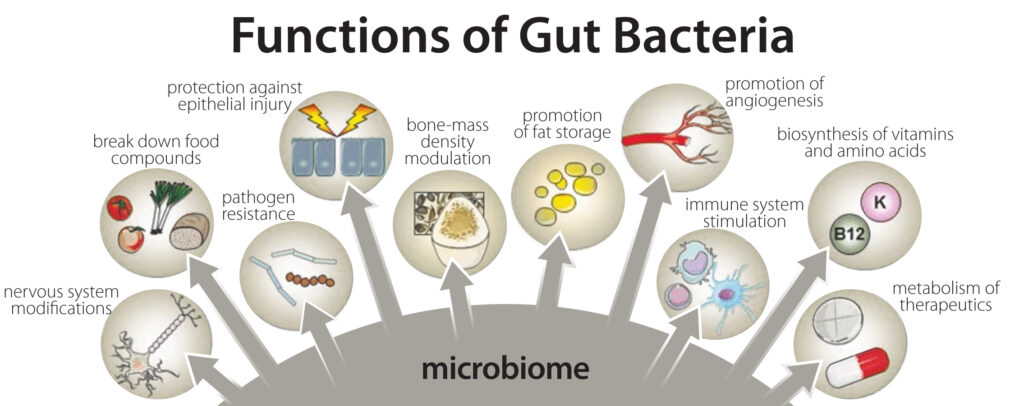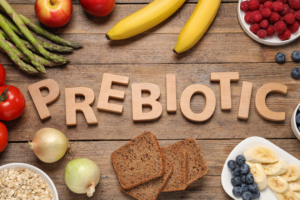Crazy enough a lot of beard care starts internally. Good, strong and healthy beards are indicative of the internal health of the man wearing it. From gut health to how well your blood flows, and even how consistent you keep your hormone levels, all are factors that lead to growing the best beard possible. Genetics do play a pivotal role but you can enhance your natural abilities to grow a beard by what you eat and how you live your life. Today we are going to focus on……
Gut Health:
You can have the coolest looking Ferrari on the market, but if the engine is broke, you aren’t going anywhere. Yes, you HAVE to pay attention to what you are putting IN your body, but if you aren’t digesting correctly, you won’t absorb the nutrients needed for your body to run optimally. Too much Candida, and other sugar craving bacterium, will hinder the breakdown and absorption of nutrients. They will also encourage unhealthy cravings for high sugar foods which will greatly affect hormone levels as well as sleep cycles, both of which greatly affect your body’s ability to grow! (We will touch more on those in the next part of this blog).
Cleansing your body of the bad bacterias, while encouraging and replacing good probiotics, is the first and most crucial step to giving your body what it needs to grow the ultimate facial hair. There are a lot of cleanses to choose from, though at Frontline we focus heavily on the most natural approach to supporting your body. In a time where most people look for quick fixes and to cover the symptoms, we look to support the body’s natural functional healing and this takes time and patience but the results are worth it! A good natural cleanse will decrease bloating, increase nutrient absorption and even make you do the duty on a regular basis. No more all over the place poops.
Growing the positive bacterium also takes time but is worth the work and longer lasting than the quick fixes. These are most commonly referred to as PROBIOTICS
Probiotics have gained significant attention in the health and wellness industry, with an influx of products claiming to be cure-alls for various ailments. This proliferation of probiotic supplements raises a critical question: How can consumers identify and select the most effective probiotics for their specific needs?

Understanding Probiotics
The human gastrointestinal (GI) tract, commonly referred to as the gut, houses a complex ecosystem of microorganisms collectively known as the microbiome. This diverse community includes bacteria, viruses, fungi, archaea, and protozoa, all of which play crucial roles in immune function, digestion, and other physiological processes. While some microorganisms may be pathogenic, others are beneficial, and maintaining an optimal balance is essential for overall health.
Disruptions in the gut microbiome balance have been associated with a range of health issues, extending beyond gastrointestinal problems to include immune dysfunction and infections. Factors such as diet, emotional and physical stress, and antibiotic use can adversely affect this delicate equilibrium, often by eliminating beneficial bacteria along with harmful ones.
Probiotics are beneficial microorganisms, typically bacteria similar to those naturally occurring in the gut, that help maintain the balance of beneficial bacteria. They may provide relief for conditions such as Irritable Bowel Syndrome (IBS), ulcerative colitis, acute infectious diarrhea, and antibiotic-associated diarrhea, including Clostridioides difficile (C. diff) infections. Additionally, specific probiotic strains have demonstrated potential in enhancing immunity, reducing inflammation, and positively impacting cholesterol levels.
Selecting an Appropriate Probiotic
The probiotic market offers a wide array of products containing various bacterial strains. To maximize benefits, it is crucial to select a probiotic tailored to your specific health concerns. When evaluating probiotic options, consider the following factors:
- Colony-forming units (CFUs): The quantity of viable bacteria per dose
- Bacterial strains utilized
- Storage requirements
- Efficacy of specific strains and brands based on scientific research
Additionally, consider focusing on probiotic-rich foods as an alternative to supplements.
Dosage and Colony-Forming Units
Authentic probiotic products should contain live and active bacterial cultures, as indicated on the packaging. Pay close attention to the number of colony-forming units (CFUs), which represents the quantity of viable bacterial cells per dose. A general recommendation is to choose products with a minimum of 1 billion CFUs, containing genera such as Lactobacillus, Bifidobacterium, Bacillus, or Saccharomyces boulardii, which are among the most extensively researched probiotics.
However, it is important to note that each genus encompasses numerous strains with varying effects. To determine the appropriate CFU dosage for a specific condition, consult a healthcare professional before initiating probiotic supplementation.
Storage and Expiration Considerations
Carefully review the label for storage instructions. Most probiotics require refrigeration to maintain viability, and it is essential to ensure that retailers adhere to proper storage practices. Heat can be detrimental to the microorganisms in probiotics if not stored correctly.
Pay attention to expiration dates, as CFUs tend to decrease over time, potentially reducing efficacy. Look for probiotics encapsulated with a prebiotic food source, such as inulin, which helps maintain viability during shelf life.
Research-Backed Brands and Scientific Evidence
As dietary supplements, probiotics are not regulated by the U.S. Food and Drug Administration (FDA). This lack of oversight allows companies to market various products as probiotics without stringent quality control. To ensure safety and efficacy, scrutinize product labels and review scientific studies to identify probiotics with demonstrated positive outcomes for specific conditions.
Be cautious of misleading labeling. For example, while yogurt is produced using bacterial cultures such as Streptococcus thermophilus and Lactobacillus bulgaricus, these starter cultures are often destroyed by stomach acid and may not provide probiotic benefits. Some manufacturers add supplemental bacteria to their products; therefore, check labels for bacteria added beyond the starter cultures.

Probiotic Foods vs. Supplements
While some individuals prefer probiotic supplements, incorporating probiotic-rich foods into one’s diet is beneficial, especially long term. Fermented foods such as yogurt, kefir, kombucha, refrigerated sauerkraut, kimchi, tempeh, and miso provide a nurturing environment for beneficial bacteria to thrive and produce important byproducts like short-chain fatty acids.
Prebiotic Support for Existing Gut Bacteria
Given the variability in probiotic product quality and efficacy, it is also important to focus on prebiotics, such as fermentable fiber, and other foods which support the growth of beneficial bacteria already present in the gut. Excellent dietary sources of prebiotics include legumes, garlic, asparagus, onions, leeks, artichokes, green bananas, cold-boiled potatoes, and wheat. Prebiotic supplements are also available for those seeking additional support.

Prebiotics
It is important to note that probiotics may initially cause bloating, gas, and changes in bowel movements. However, these effects are often early indicators that the product is working as intended. Stick with it and allow your body to go through it’s natural process of cleansing and resetting your gut. It is also common to have mild flu-like symptoms in the beginning of a cleansing. This is your body’s natural immune response to stored toxins being released from within your body. Be patient stay hydrated, and let your body do it’s thing
GOOD NEWS!!! Frontline Beard Co is set to launch Frontline Nutrition Summer of 2025! Our first product in our nutrition line will help make this part of the routine simpler. “I personally recommend the Plexus gut health routine as an all-natural cleanse and gut health reboot. I have used this product off and on for years and with great results.” -Ed Cunningham CBEO Frontline Beard Co- You can check it out here
Lastly, we make a promise that here at Frontline Beard Co, We will always do our best to thoroughly research every product and will only recommend products that we have personally used and believe in. If you have any recommendations, please feel free to reach out to us at Customercare@frontlinebeardco.com
Kindest Regards,
Starr McBride
SMcBride@FrontlineBeardCo.com

